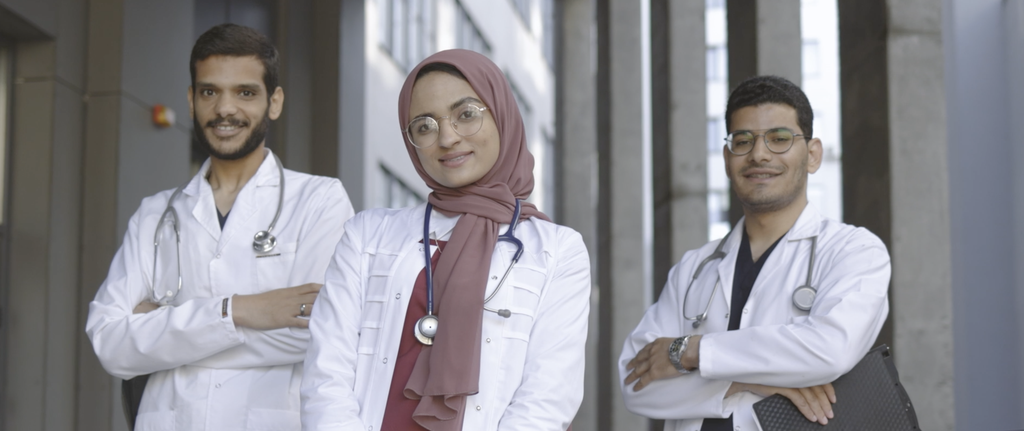Over two thirds of people with an eating disorder feel their GP did not understand how to help them, new survey finds

69% of people with an eating disorder felt that their GP did not know how to help them, according to a new survey for Eating Disorders Awareness Week by Beat, the UK’s eating disorder charity. Beat are calling for all medical schools to implement comprehensive training on eating disorders so all doctors, including GPs, are able to identify eating disorders and signpost patients to specialist support without delay.
To provide the best possible care to people with eating disorders, it is vital to learn about these serious mental illnesses at the very earliest opportunity. Currently there is no requirement to provide medical students with any eating disorder training in the UK, with the average student receiving less than two hours throughout their degree. A fifth of medical schools do not provide any training at all according to research.
During Eating Disorders Awareness Week 2022 (28 February – 6 March), Beat is campaigning for every medical school to provide comprehensive eating disorder training to give future GPs all the necessary knowledge and skills they need to help a patient presenting with an eating disorder. Currently 7 medical schools in the UK have implemented adequate training, including Glasgow Medical School, with a further 7 in the process of doing so.
In Beat’s survey of those with lived experience of an eating disorder, respondents identified a wide range of experiences with healthcare professionals. These included being told they were not ‘underweight enough’ to get treatment, feeling afraid that they wouldn’t be taken seriously, and that opportunities to detect their eating disorder were missed.
Aisha* said ‘My GP was just reading definitions from Google. I felt I had the same knowledge as them, except they were the only ones able to refer me for help.’
Several people voiced frustrations that their GP did not know about the treatment available. Sean* reported that their GP ‘was not aware of any organisations or psychologists who specialise in eating disorders’, and others said that it took ‘several GPs and lots of persuasion’ in order to be referred to treatment.
92% of people with an eating disorder reported feeling that their GP would benefit from more training. Alex* said ‘My GP encouraged me to eat more but didn’t understand the barriers to doing this... I feel more needs to be understood about the anxiety and feelings around eating.’
Those who had positive experiences with their GP emphasised how valuable it was to speak to a knowledgeable professional, and the crucial role GPs played in their recovery. Remi* said ‘Having someone who really knew about eating disorders, yet treated my experience as unique to me, was so necessary in my recovery.’ Another wrote that their GP immediately referred them to specialist treatment after their first meeting.
A further 67% of survey respondents felt that early opportunities to identify their eating disorder were missed, and 52% of people said they would have sought help sooner if they’d had greater confidence that healthcare professionals could support them.
Beat’s Chief Executive, Andrew Radford, said: ‘It is essential that all medical students receive training on eating disorders. Quality education about eating disorders during medical school will help our future doctors to increase their understanding of these complex illnesses, identify the early signs and symptoms, and signpost people to treatment.
‘Healthcare staff work tirelessly to provide the best care for their patients, but through no fault of their own they often do not have the training that they need.
‘We know that it can feel incredibly overwhelming to reach out for help for an eating disorder. The sooner somebody receives specialist treatment, the better their chances of making a full recovery, and so it is essential that every person with an eating disorder feels confident that they will be supported by their GP.’
Eating Disorder Clinician, Dr Stephen Anderson, who delivers Beat’s eating disorders training at Glasgow Medical School, said: 'GPs may not have had much teaching or experience of eating disorders, but that does not mean they do not want to help. In the scenario-based sessions at Glasgow Medical School, we make it clear that we don’t expect all doctors to be experts in eating disorders, but they must be able to understand how eating disorders present and how to signpost people to appropriate support.
‘We know from various reviews and investigations that lack of training and education can cost the lives of people with eating disorders and none of us want this. Improving education and training needs to extend across all disciplines and specialties including schools and the fitness industry.'
*Names have been changed
How Can I Help?
We’re asking supporters to share their positive or negative experiences with their GPs across social media to showcase the difference knowledge, understanding and compassion can make for someone who is struggling throughout the week.
We’re asking supporters to join our campaign for change so we can keep them updated on how the campaign is progressing and other ways they can get involved. With the tools and the time to understand eating disorders, our future GPs will be better equipped to make crucial, life-changing interventions.
Our supporters’ fundraising activities and generous donations will amplify our call for proper training on eating disorders to be adopted by all UK medical schools and foundation year programmes.